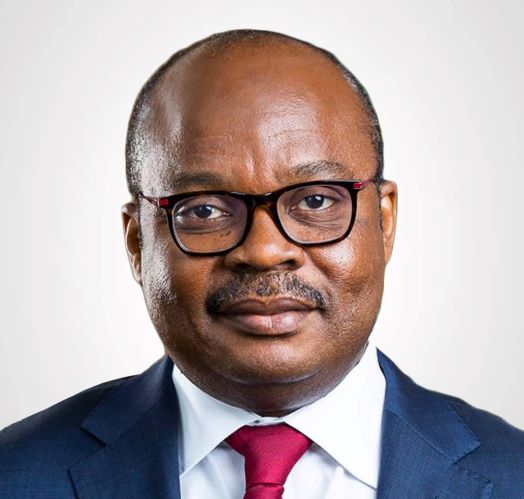Current macroeconomic challenges are negatively impacting the banking and financial sectors, resulting in the sector’s unimpressive performance in December 2022 compared with December 2021, as some key Financial Soundness Indicators (FSIs) recorded significant declines.
Profitability levels in the banking sector have declined, driven by the mark-to-market losses on investments, higher impairments on loans, and rising operating costs.
32.2% increase in operating expenses
Operating expenses rose by 32.2% in December 2022, compared with 14.2 % growth in 2021.
184 % increase in Provisions
Provisions also increased sharply by 184 % in December 2022 relative to a contraction of 4.7 % a year earlier, due to the strong uptick in credit growth, elevated credit risks, and impairments on investments.
GH¢53.7bn new loans and advances
New loans and advances in 2022 increased to GH¢53.7 billion, reflecting an annual growth of 47.5 %, compared with the growth of 6.8 % in 2021.
18.9% contraction in profit-after-tax
Profit-after-tax was GH¢3.9 billion at end December 2022, representing 18.9% contraction year-on-year, compared to 12.3% annual growth recorded in 2021.
Increased pressure on solvency and liquidity of banks
Latest macro-prudential risk assessments indicated increased pressure on solvency and liquidity of banks ahead of the implementation of the Domestic Debt Exchange Programme.
Rising cost of credit due to inflationary pressures
Chairman of the Monetary Policy Committee (MPC) of the Bank of Ghana (BoG), Governor Dr Ernest Addison, lamented that “developments in the banking sector were broadly reflective of current macroeconomic conditions, with rising cost of credit due to inflationary pressures, and revaluation-driven balance sheet performance.”
Police rate increased to 28%
He announced another hike in benchmark interest rate to 28% from 27% citing the need to drive inflation downwards.
Net interest income grew by 23%
He explained that net interest income grew by 23% to GH¢15.8 billion, higher than the growth of 14.5 % in 2021.
Net fees and commissions went up by 27.4 %
Also, net fees and commissions went up by 27.4 % to GH¢3.7 billion, from the 24.8% growth recorded in 2021.
Operating income increased by 30.9%
Operating income increased by 30.9% last year, compared with 14.6% recorded in 2021.
“The strong outturn in operating income was however moderated by increased operating expenses and provisioning during the year,” the Governor added.
Capital Adequacy Ratio declined to 16.6 %
Dr Addison explained that the banking industry’s Capital Adequacy Ratio (CAR) declined to 16.6 %, but remained above the prudential minimum of 13 %, as at December 2022, from 19.6 % in December 2021, attributed to losses on mark-to-market investments, increase in risk-weighted assets of banks from the high growth in actual credit, and the price effect of the depreciation of the Ghana Cedi on foreign currency denominated loans.
Return-on-equity and return-on-assets declined
He said the sector’s return-on-equity and return-on-assets also declined during the period, in line with declining profit after tax and profit-before-tax, respectively.
Non-performing loans improved to 14.8 %
The governor noted that the non-performing loans (NPL) ratio however improved to 14.8 % in December 2022 compared with 15.2 % in December 2021, on account of high credit growth, relative to the increased stock of NPLs between the two periods.
Total investments contracted by 4.8 %
According to him, total investments contracted by 4.8 % to GH¢79.2 billion in December 2022, relative to a 29.0 % annual growth in 2021, as banks rebalanced asset portfolios in response to the Domestic Debt Exchange Programme.
Total assets increased by 22.9% to GH¢221bn
Dr Addison announced that total assets however increased to GH¢221 billion, representing an annual growth of 22.9% in December 2022, compared to a growth of 20.4 % a year earlier.
Total deposits increased by 30.4 % to GH¢157.9bn
He reveal that total deposits ended the year at GH¢157.9 billion, representing an increase of 30.4 % in 2022, relative to a growth of 16.6 % in 2021.
Credit growth increase by 30.2 % to GH¢70bn
He stated that credit continued to increase, recording a growth of 30.2 % to GH¢70 billion from GH¢53.8 billion in December 2021.
Regulatory reliefs for banks
To moderate the potential impact on the sector, the BoG Governor listed some regulatory reliefs for banks to help preserve financial stability.
Dr Addison explained that the MPC sees the need to remain vigilant and moderate liquidity in the system to underpin macroeconomic adjustments taking place to drive inflation on a downward path.
He said domestic growth conditions, which softened in 2022, were projected to moderate further and remained below potential over the near-term, based on the elevated inflation levels.
54.1% Inflation
The rate of inflation touched a high of 54.1% in December, spurred by food inflation.
Economic Activity contracted by 6.2% in November
The updated Composite Index of Economic Activity (CIEA) contracted by 6.2% in November 2022, compared with a growth of 10.2% in the same period of 2021.
Continued dip in economic activity
Dr Addison said the CIEA showed continued dip in economic activity, despite the slight improvement in consumer and business sentiments from the latest surveys.
In nominal terms, credit to the private sector rose sharply, but was moderated in real terms by price pressures.
Staff Level Agreement with IMF
He said the Government’s Staff Level Agreement (SLA) with the IMF spelt out measures to put the fiscal on the path of consolidation.
Consistent with the SLA was the 2023 Budget which has just been passed by parliament and frontloads the consolidation efforts, he said.
Revenue enhanced measures such as the Value Added Tax (VAT) increase of 2.5%, the complete removal of benchmark values on imports, and the review of the E-Levy should help improve the revenue outlook, the Governor added.
On the expenditure side, the lower capping on transfers to earmarked funds from 25 to 17.5%, and the reduction of budgetary allocation to goods and services, as well as rationalisation of executive compensation should help contain expenditures in 2023.
“The concerns being expressed in the public domain relating to high government expenditures have been addressed in the SLA and reflected in the 2023 Budget,” he said.
Domestic Debt Exchange Programme
The SLA is also contingent on the Domestic Debt Exchange Programme and external debt restructuring, which when concluded and the necessary financial commitment obtained, will allow the presentation of the SLA to the IMF Board.
Restoring fiscal and debt sustainability
“The MPC believes that these measures will help restore fiscal and debt sustainability and bring down inflation as well as help stabilise the currency,” he said.
Trade surplus more than doubled to $2.8 billion
In 2022, the country’s trade surplus more than doubled to $2.8 billion compared with $1.1 billion in 2021, driven by higher exports growth, relative to the growth in imports.
Total exports increased by 18.2% to $17.4bn
Total exports increased by 18.2% year-on-year to $17.4 billion, driven by crude oil, gold and other exports earnings.
This compares with $14.7 billion export earnings recorded in 2021.
$6.2bn Gross International Reserves
At the end of December 2022, the stock of Gross International Reserves stood at $6.2 billion (equivalent to 2.7 months of import cover) from a stock position of $9.7 billion (equivalent to 4.4 months of import cover) at the end of December 2021.
$2.4bn Net International Reserve
The Net International Reserve position stood at $2.4 billion, from $6.1 billion over the same comparative period.




